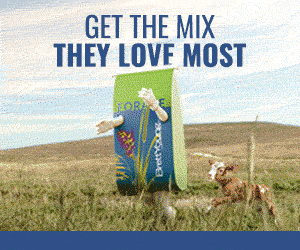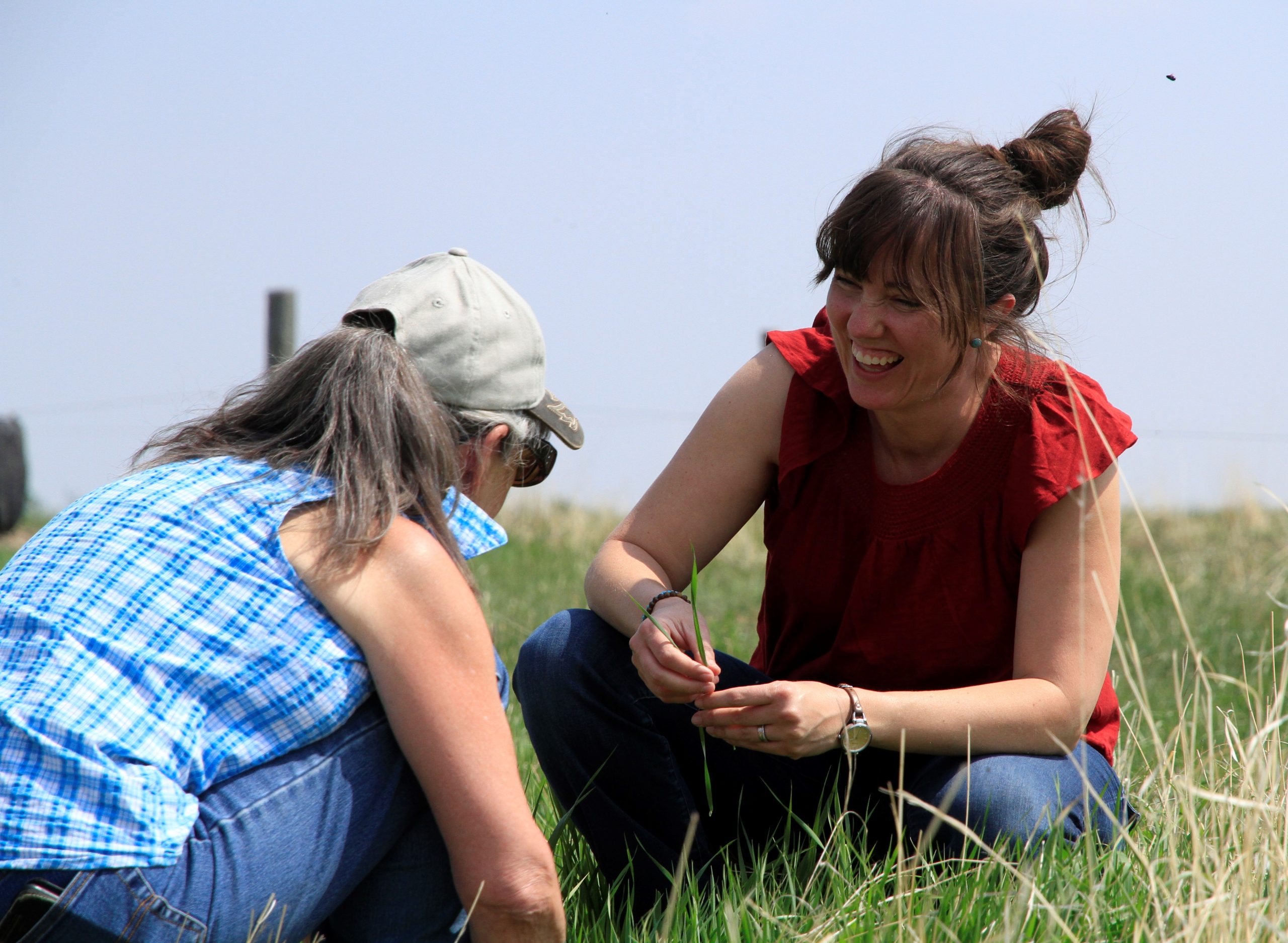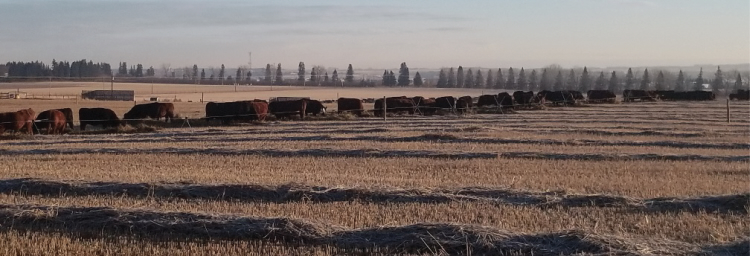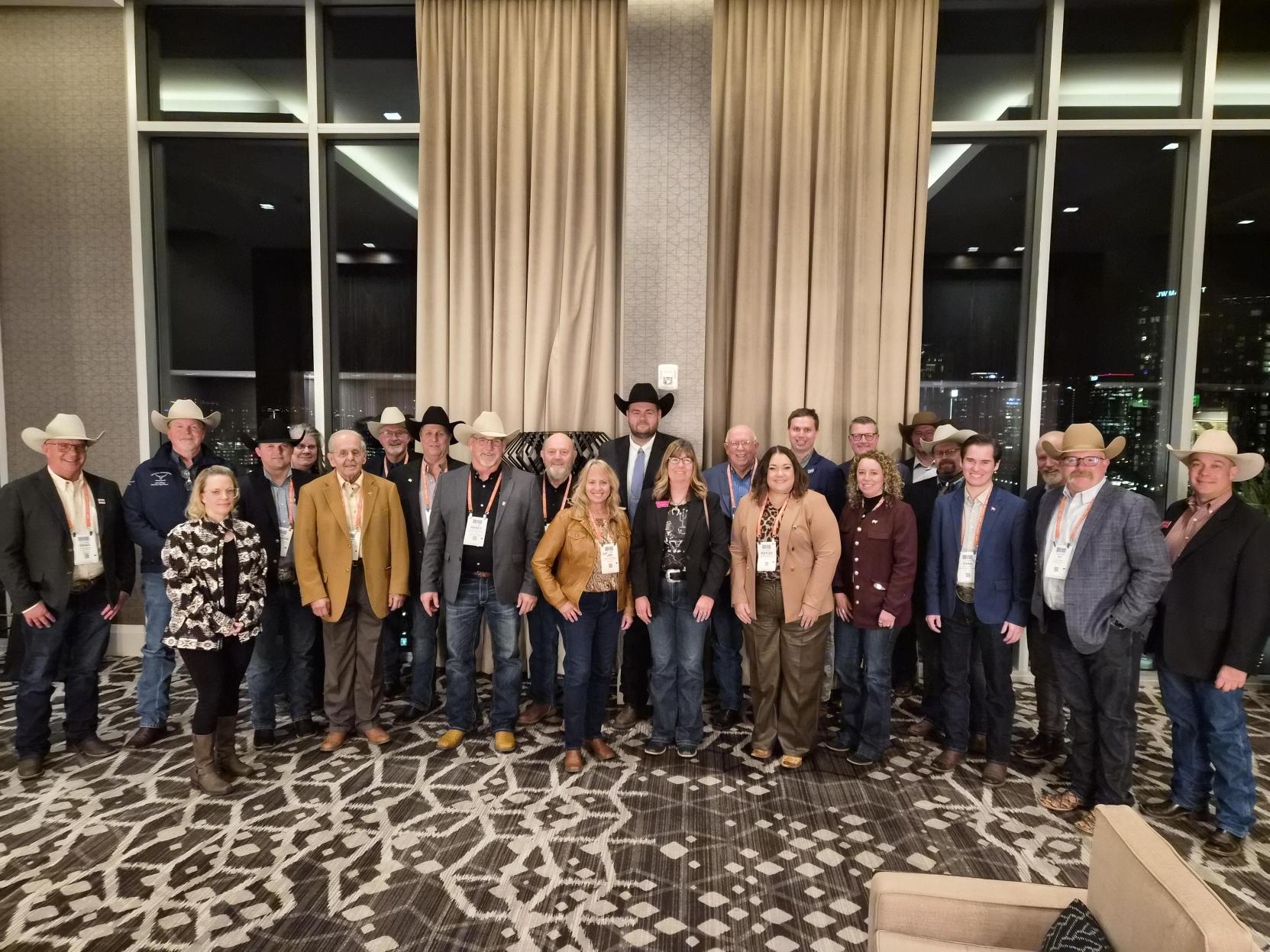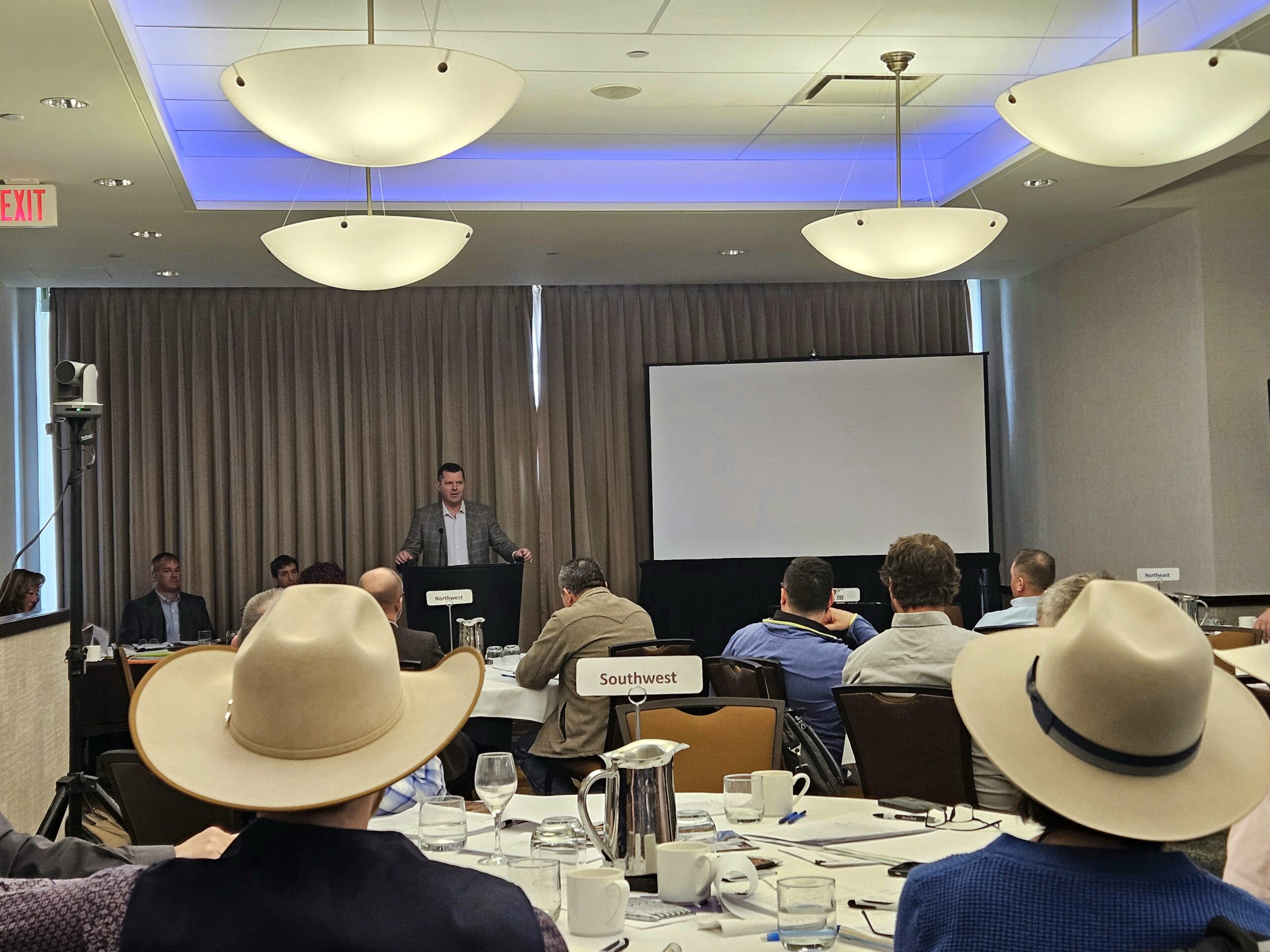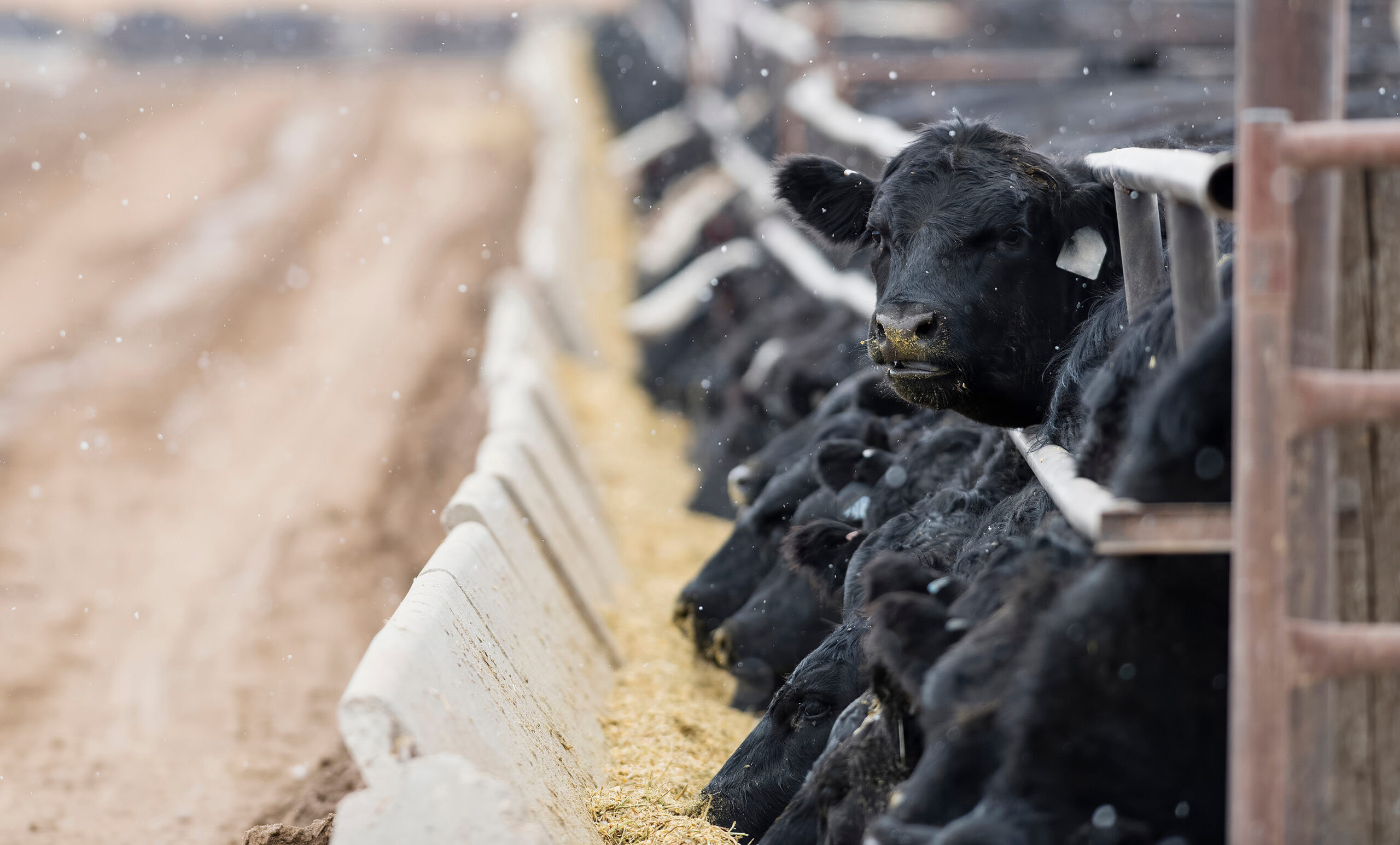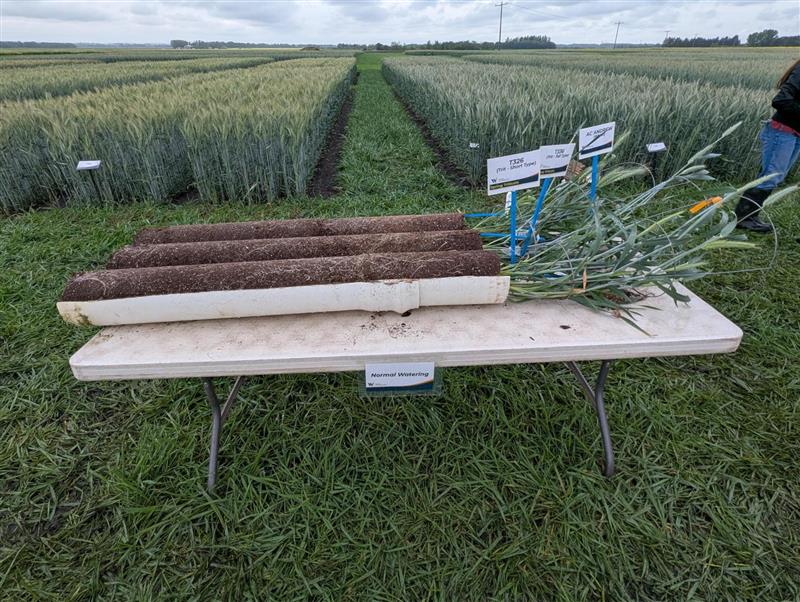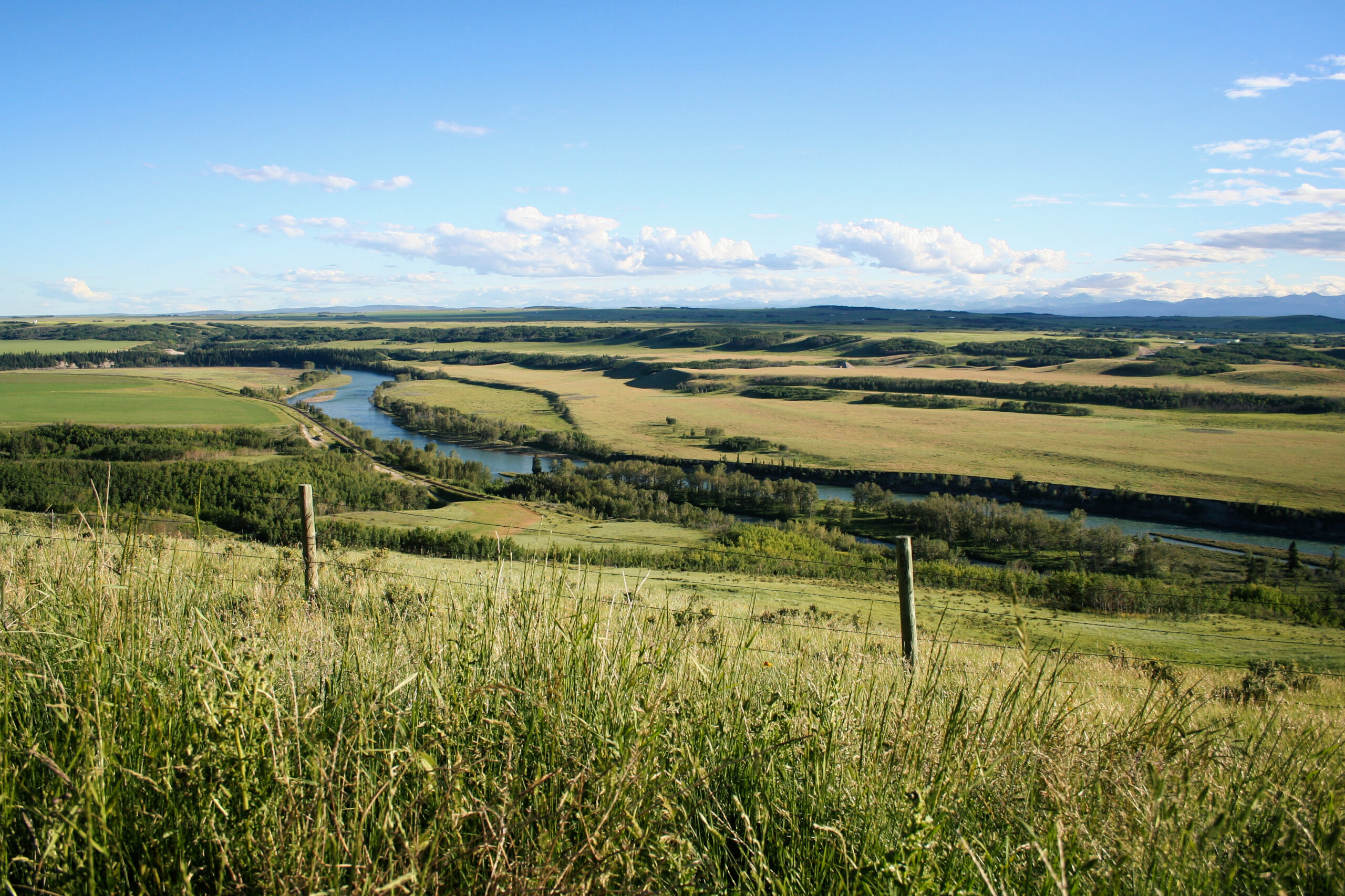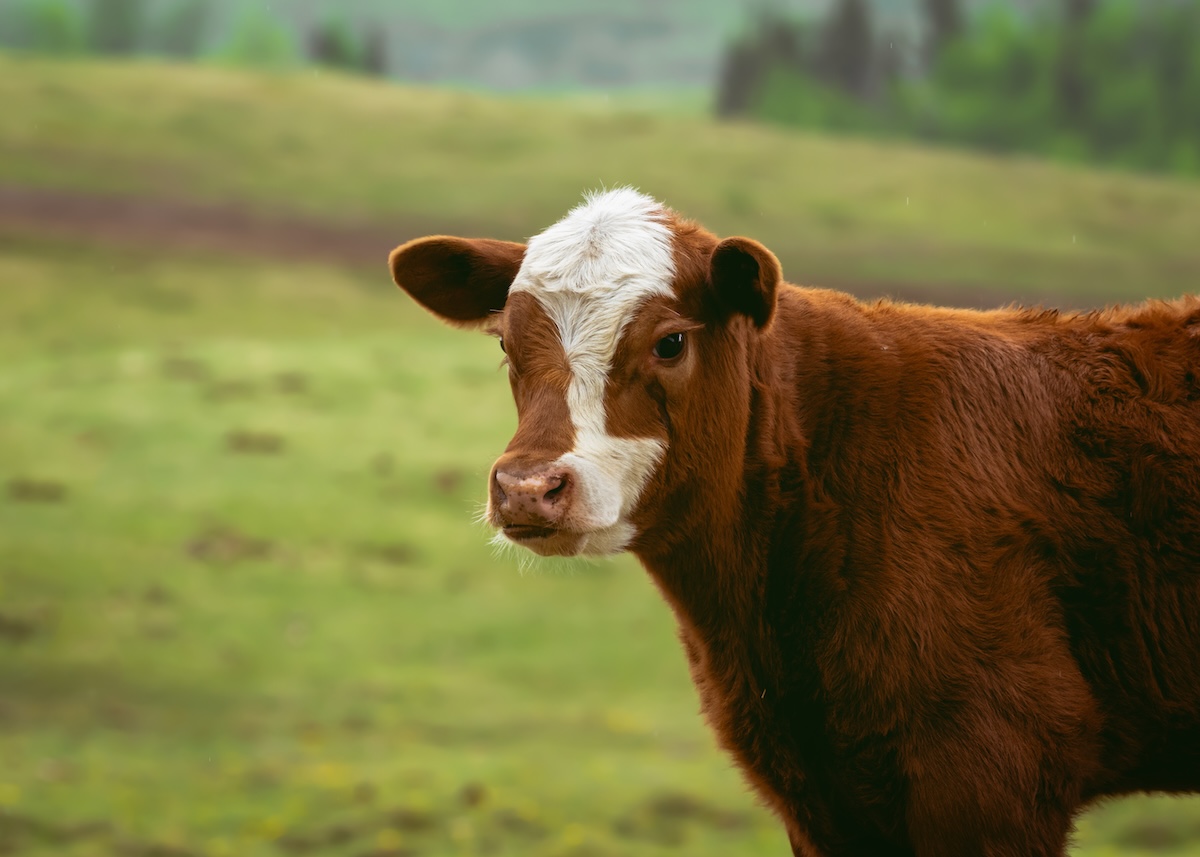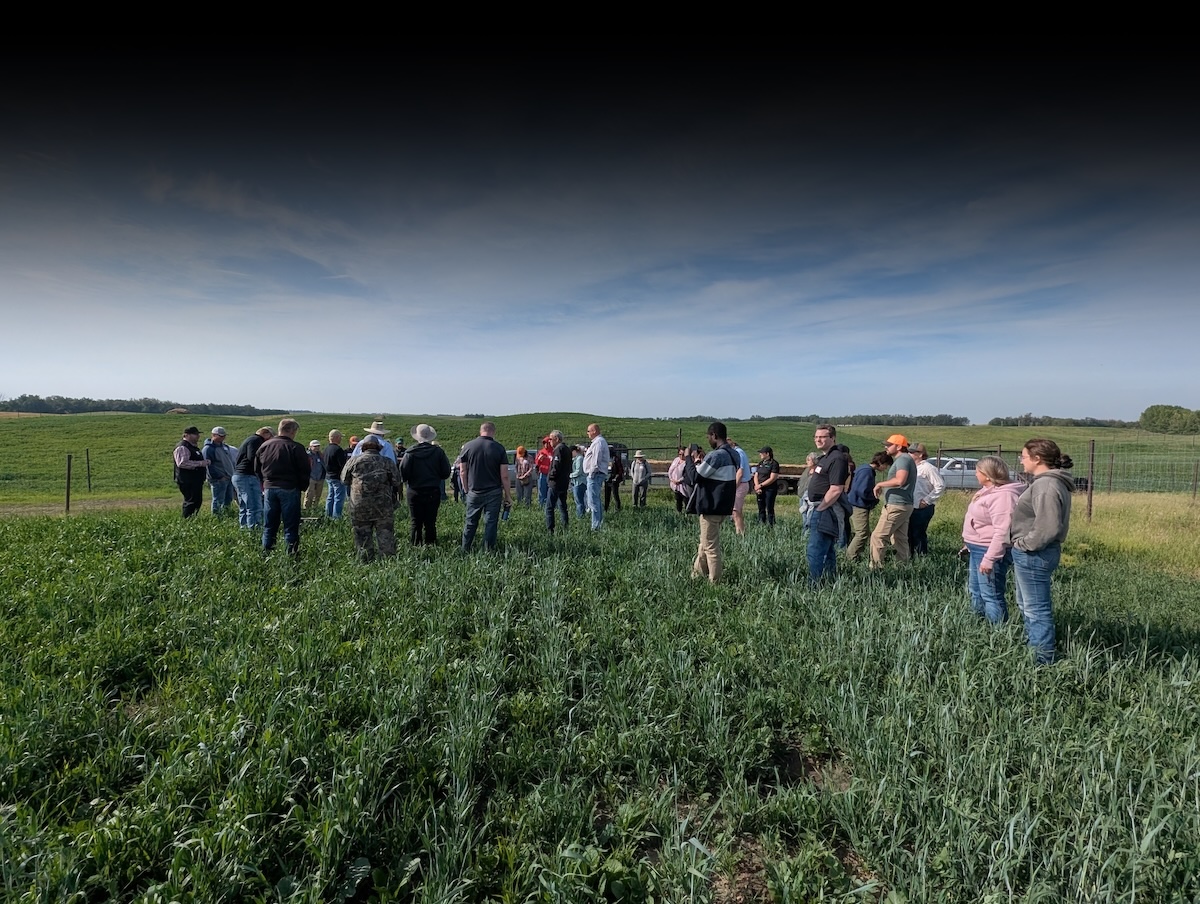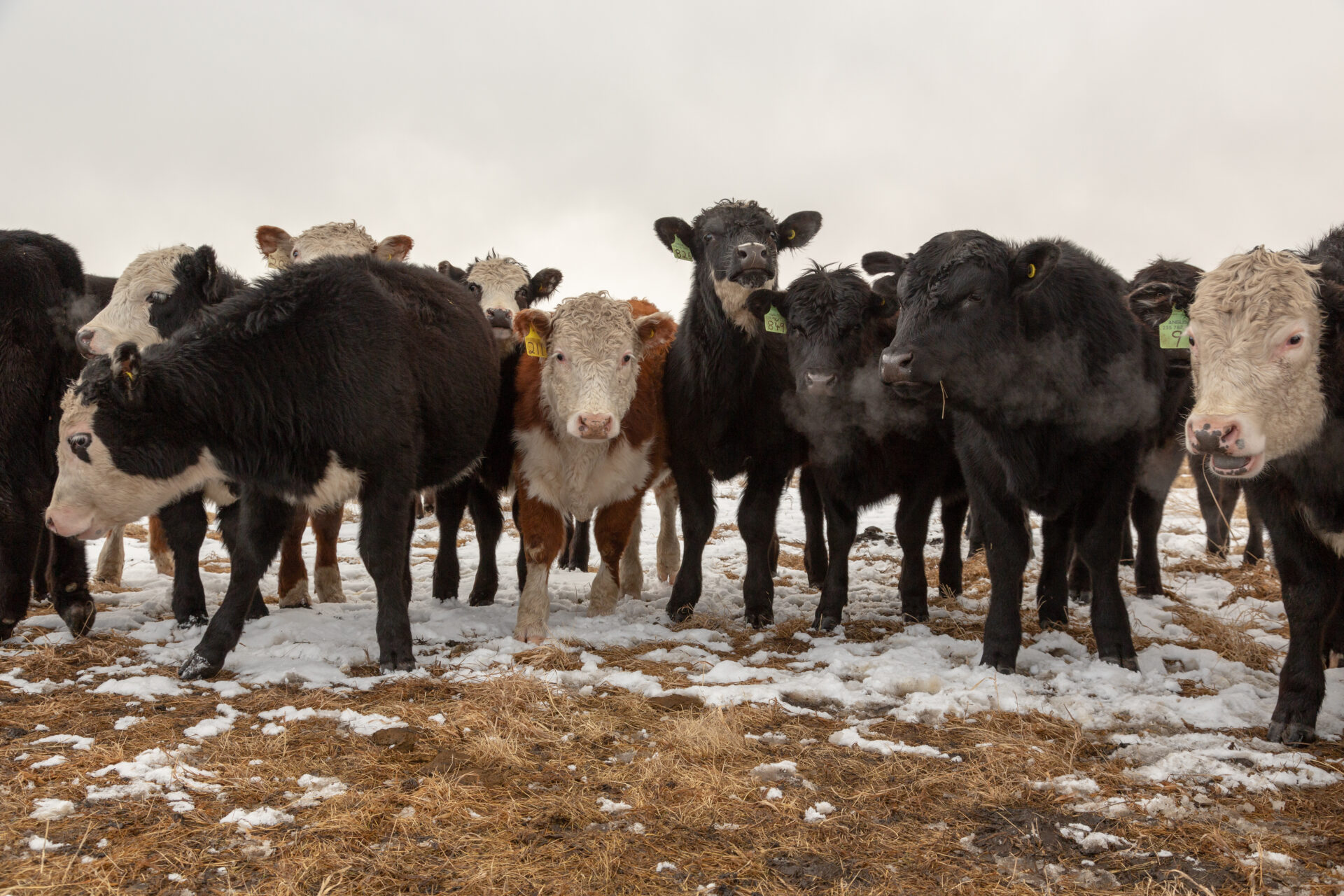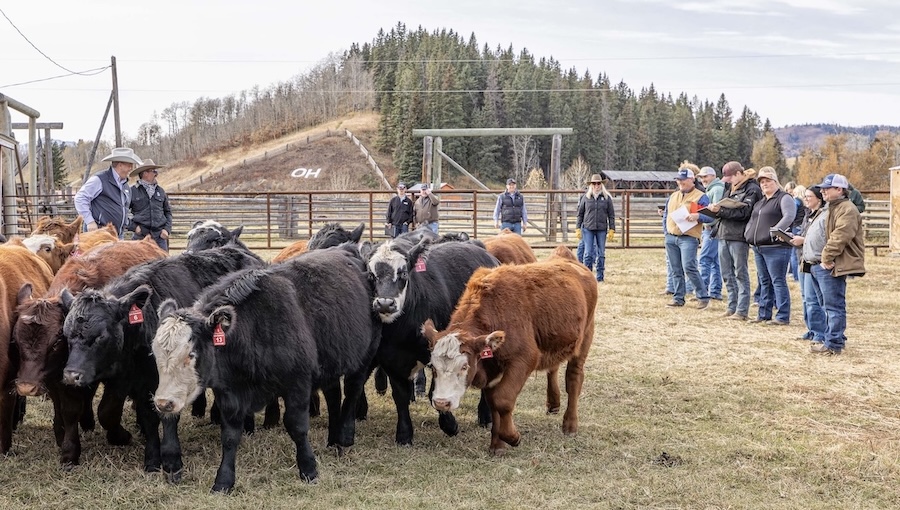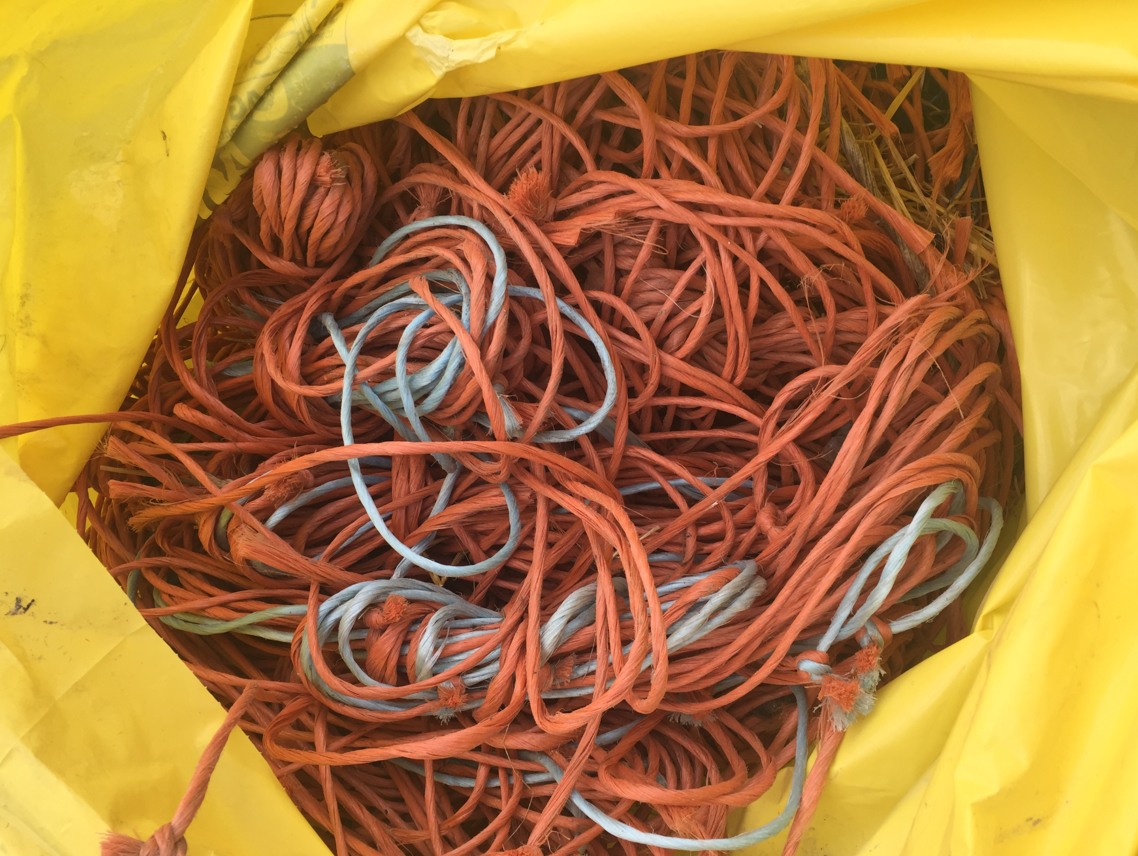AB Direct - Steers
Rail: 527.50-533.50 FOB feedlot (last week)
AB Direct - Heifers
Rail: 527.50-533.50 FOB feedlot (last week)
US Trade- Steers
Rail: 382.00-384.00 (NE, IA) last week
US Trade - Heifers
Rail: 382.00-384.00 (NE, IA) last week
Canadian Dollar
0.28
Canadian beef industry statement on AAFC research cuts
The Canadian Cattle Association (CCA) and the Beef Cattle Research Council (BCRC) are concerned about Agriculture and Agri-Food Canada (AAFC) reductions affecting research farms, facilities, programs and research expertise at Nappan (Nova Scotia), Quebec City (Quebec) and Lacombe (Alberta). We recognize the fiscal pressures facing the federal government; however, the cuts will have far-reaching impacts…
ABP hosts state and provincial cattle groups alongside NCBA’s CattleCon
Supporting cross-border cattle industry connections Alberta Beef Producers (ABP) hosted a meeting of state and provincial cattle groups in Nashville, TN on Monday, to coincide with the National Cattlemen’s Beef Association’s Cattle Industry Convention and Tradeshow (CattleCon). The meeting brought together representatives from U.S. state cattle associations and Canadian provincial organizations, along with others from across the beef value chain, as an opportunity to build and strengthen relationships at…
Join us at ABP’s 2026 Annual General Meeting
Join Alberta Beef Producers at our Annual General Meeting to connect with delegates, staff, beef producers, and industry representatives. ABP is hosting its AGM in Calgary, AB. Please feel free to join in-person or online from the tractor, office, or wherever you may be on March 3, 2026. Agenda Elections: Eligible cattle producers can run…
Canfax Weekly Article | Report for the week of February 2, 2026
Last week, the Canfax average fed steer and heifer price closed around $304/cwt live, $2/cwt higher than the previous week. Over the past two months, fed prices have rallied $20/cwt. Light trade was reported with dressed sales ranging from $505.25–506.50/cwt FOB the feedlot. Cattle that traded were being scheduled anywhere from immediate to late February…
Agriculture research centres heavily impacted by federal budget cuts
Recently announced budget cuts at Agriculture and Agri-Food Canada raise important questions about the impact to beef and forage work done in support of the industry. Media reports indicate AAFC facilities tied to beef and forage research are among those facing capacity reductions or even closures as part of cuts announced under the 2025 federal…
Help the Alberta AgriSystems Living Lab assess impacts
Farmers and ranchers across Alberta and the Peace region of B.C. are invited to take part in a new survey conducted by the Alberta AgriSystems Living Lab. The survey is designed to track how the adoption of beneficial management practices (BMPs) has changed since the Living Lab started in 2022. The results will help program…
BCRC webinar recap: Early calf life survival
The first 24 hours of a beef calf’s life are the most vulnerable. During the Beef Cattle Research Council’s webinar, Early Calf Life Survival, Dr. Roger Richard of Shoal Lake Veterinary Clinic, Dr. Claire Windeyer from University of Calgary Veterinary Medicine and Heidi Bennett with W.A. Ranches discussed navigating calving and the critical early life…
An Update from the Alberta Agri-Systems Living Lab
The Alberta AgriSystems Living Lab (AALL) continues to strengthen collaboration between producers, researchers, and partners across Alberta to test, refine, and share innovative best management practices (BMPs) that enhance resilience and profitability on crop, livestock and forage operations. Most of the core producers implementing BMPs through the AALL were in their third field season in…
Gathering feedback at Producer Meetings
Alberta Beef Producers (ABP) is in ongoing discussions with Alberta’s Ministry of Agriculture and Irrigation regarding the proposed regulations on traceability. These discussions included a conversation between General Manager Brad Dubeau and Deputy Minister Jason Hale late Friday. DM Hale has discussed the current situation with the Canadian Food Inspection Agency (CFIA), and the CFIA…
Canfax Weekly Article | Report for the week of January 26, 2026
Alberta fed steers and heifers closed the week at $303.00/cwt and $301.00/cwt respectively, steady with the previous week. Dressed sales were reported from $505.00–508.00/cwt delivered, mostly at $508.00/cwt, also steady with the previous week. Competition on the cash market was limited. Cattle that traded were scheduled anywhere from immediate to the second half of February…
Youth Ambassador Program kicks off at OH Ranch
Twelve youth gathered at the Calgary Stampede’s OH Ranch this fall for Steer Selection Day, the official kickoff to the Calgary Stampede’s 2025–26 OH Ranch Branded Beef Youth Ambassador Program. The day brought together this year’s ambassadors and their families for orientation, hands-on learning, and the key event: selecting the steer each youth will raise…
The Great Twine Round-Up contest returns
The Great Twine Round-Up contest is back for 2026, encouraging Alberta producers and youth to recycle plastic baler twine while supporting local communities and agricultural charities. The initiative is part of the Alberta Ag-Plastic. Recycle It! pilot project. Alberta-based 4-H clubs, district members, and independent entrants are invited to collect and recycle used plastic baler…

